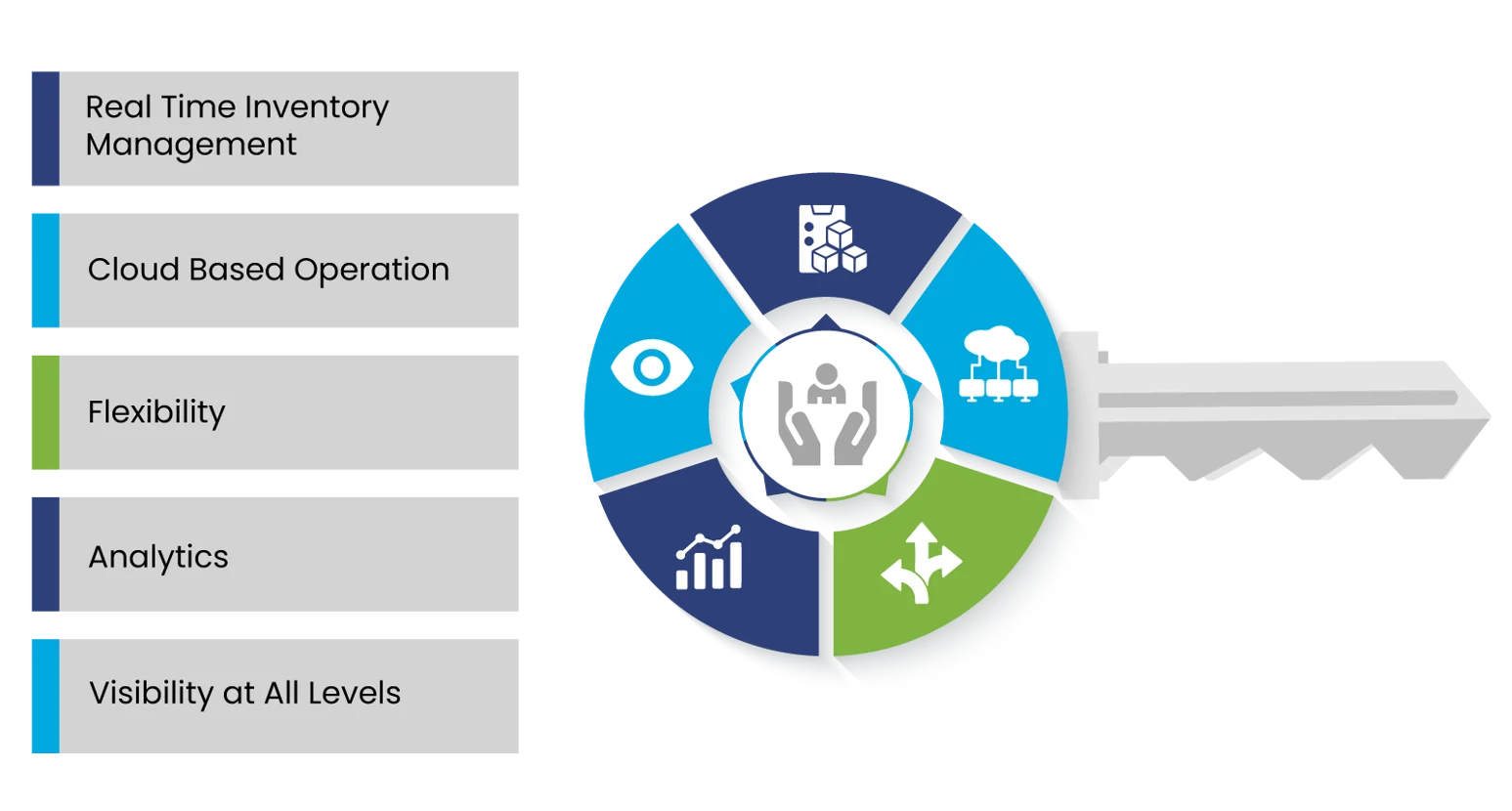
5 Mission Critical WMS Features You Shouldn’t Live Without

A Warehouse Management System (WMS) should be an indispensable tool for effectively managing and optimizing warehouse operations. It should provide real-time visibility into inventory levels within warehouses and during transit, allowing effective tracking and management of stock. A good WMS can facilitate the picking and packing processes, guiding warehouse personnel through efficient routes and methods for order fulfillment; as well as the smooth handling of goods and materials upon arrival, tracking the receiving process, ensuring accurate inventory counts, and providing guidelines for proper “putaway”. It will maximize resource allocation, including labor, equipment, and storage space. It will also provide insights and analytics for efficient resource planning and utilization, enhancing overall operational efficiency.

Real Time Inventory Management
Your team and your customers can’t wait for the information they need to make decisions, nor should they have to. There should be little or no delay in seeing the most current status of items in inventory or ordered and on the way. More accurate reporting leads to better decision making, increases the ability to respond to potential shortages, decreases wasted time chasing “out of stock” items and materials and ultimately improves profitability.
Cloud Based Operation
According to CloudFlare, a network service company that helps improve the security, performance, and reliability of websites and services connected to the internet, “... cloud computing is often more secure than on-premise computing. Most cloud providers have more resources for keeping data secure than individual businesses do, which lets cloud providers keep infrastructure up to date and patch vulnerabilities as soon as possible.
... cloud computing is often more secure than on-premise computing.” - CloudFlare
- A cloud-based WMS will also allow access from anywhere, be it on the floor with your team or off site, by using common devices such as phones, tablets, and laptops. It is particularly helpful because information is often needed when and where it is needed, not only when and where it might be available as with an on-premises system.
- Additional benefits include scalability, quick deployment, automatic updates, cost reduction and a pay-as-you-use model.
Flexibility
- When it comes to operational decision making, flexibility equals power. The ability to retain custom work processes is an essential component of any successful implementation. After all, the goal is to increase efficiency, not create the need for multiple work around situations. This is where the weakness of discounted, “off the shelf, “cookie cutter” so called solutions becomes most apparent.
- The ability to truly customize an affordably priced WMS to your specific operational needs by not treating every account as if it were identical is what sets a great WMS apart from a good one (or even a merely adequate one). Your business will grow and change in time. You should at least start with a WMS that can meet you where you are and grow and change with you.
Analytics
- At the heart of all great endeavors is knowledge. Knowing what you want to accomplish and acquiring the knowledge to allow you to do so. Data can only be used if it is first defined and captured. Any WMS can produce data, but will it be the data that you want and need to move your business to the next level? When you purchase a WMS, you should be able to decide what data you want and how to use it. It is your data, make it work for you.
- Data is only a tool. It is a means to an end that will lead you to understanding patterns, which will unlock the mysteries of your business and help define what actions you must take to move steadily forward towards success as you define it.
Visibility at All Levels
- On demand dashboards are a must. These will allow both your team and your customers to decide which information is most critical to them at any given moment. This circles back and includes the importance of both flexibility and analytics. Customers and Team Members must see real-time order status. When both can access the same information, customers are empowered, and team members are saved from being constantly pulled off-task. The combination of satisfied returning customers and a highly efficient workforce will certainly positively impact your bottom line.
- Ability to Integrate with a Wide Variety of Systems and Devices Of course, it is vital that your WMS be able to fully integrate with all other systems you may currently be operating or that you may have plans to include in your business. (e.g. ERP, LMS, TMS, etc.)
- Compliance and Traceability An important function of a great WMS is to ensure compliance with regulatory requirements and enable traceability of goods throughout the warehouse. They provide audit trails, track expiration dates, and manage lot and serial numbers, ensuring adherence to quality standards and facilitating product recalls if necessary.
Conclusion
Not all WMSs are created equal and depending on the size of your operation and your growing needs you may need to consider additional features. Most WMS software can generate comprehensive reports and analytics on warehouse metrics such as inventory levels, order accuracy, and productivity. These insights allow management to make data-driven decisions and identify areas for process improvement. Remember these 5 key areas of functionality and you are on your way to finding the best WMS to fit your needs.


